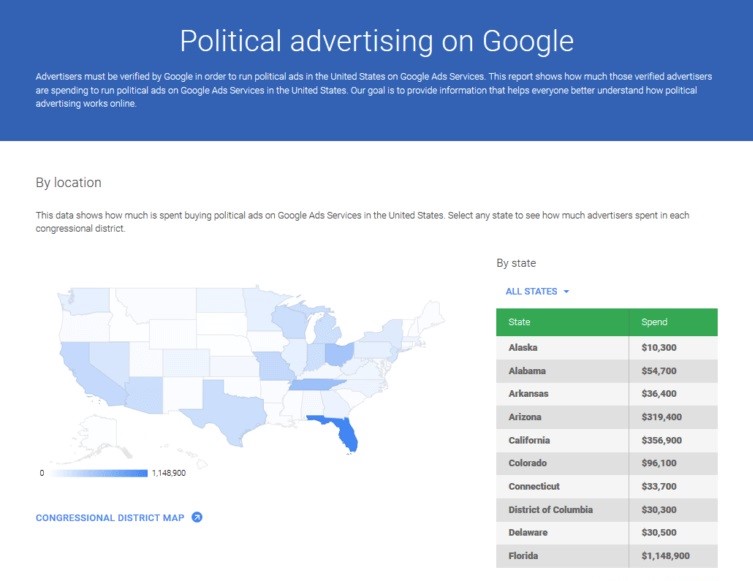On Wednesday, Twitter CEO Jack Dorsey announced that Twitter is banned from publishing political ads. Dorsey’s decision was made after a few weeks of discussions between Facebook and Elizabeth Warren about whether or not political advertising belongs on platforms during the 2020 election.
Shortly thereafter, Facebook’s Mark Zuckerberg said on his company’s earnings call that it’s not the job of a private enterprise to “censor politicians and the news”. Facebook’s controversial ads policy was a major point of contention during Zuckerberg’s recent testimony to Congress.
Despite this, Google keeps silent on YouTube political ads. What is Google doing at this time? CNBC reported, the internet giant is still working on its pitch to lure political ad buyers away from Facebook and onto YouTube with new tools.
Google’s parent company, Alphabet, received 84% of its revenue from advertising, with more and more revenue coming from its YouTube video platform. As of last month, YouTube was stepping up its efforts to lure political ad dollars away from TV and Facebook with new tools for advertisers.
Recommend article: How to Make Money on YouTube – 9 Highly Efficient Ways.
With its huge size and broad influence, Google has also managed to avoid the same level of scrutiny. Consider a recent attack on Facebook that runs an ad in Trump’s reelection campaign, which included false allegations about Joe Biden’s activities in Ukraine. YouTube and Twitter also advertised, but evaded fierce criticism.
A Google spokesperson said the company has no “special exceptions” for political advertising, and all YouTube ads must comply with its advertising policies, not allowing YouTube ads intended to deceive users.
Recommend article: 7 Tips to Create More Effective YouTube Video Ads Easily.
According to the Wesleyan Media Project, overall, the digital expenditure for the 2020 presidential candidate is now $84.6 million. Kantar predicts that the 2020 election will cost $6 billion for political advertising, 20% of which is for digital advertising.
Actually, politicians are not as well-known on Google’s media resources as on Facebook or Twitter, but they are still willing to pay a high price for visibility. According to the Transparency Report on Google’s website, since May 31, 2018, Google has earned at least $121.9 million in revenue from 167,901 political ads in the United States.

However, the numbers on Facebook and Twitter are not ideal. Zuckerberg said this week that advertising revenue from politicians will be less than 0.5% of his company’s revenue next year. Ned Segal, Twitter’s chief financial officer, said that political advertising spending in the US midterm elections in 2018 was less than $3 million, or about 0.1% of the company’s 2018 total revenue.
Currently, Facebook, Instagram, Google, YouTube and Snapchat allow political advertising, while Twitter has decided not to release political ads, consistent with LinkedIn, TikTok and Pinterest.
Recommend article: Instagram, Facebook and YouTube Could Face Massive Fines.
Whether the public agrees to YouTube’s position in political advertising, the fact that Google keeps silent on YouTube political ads cannot be changed, because YouTube is always solving problems political brought by releasing political ads.
Bottom Line
Twitter and Facebook are publicly arguing whether political ads should be retained on their websites, while Google keeps silent on YouTube political ads. What’s your opinion? Please let us know via [email protected] or share them in the comments section below.

